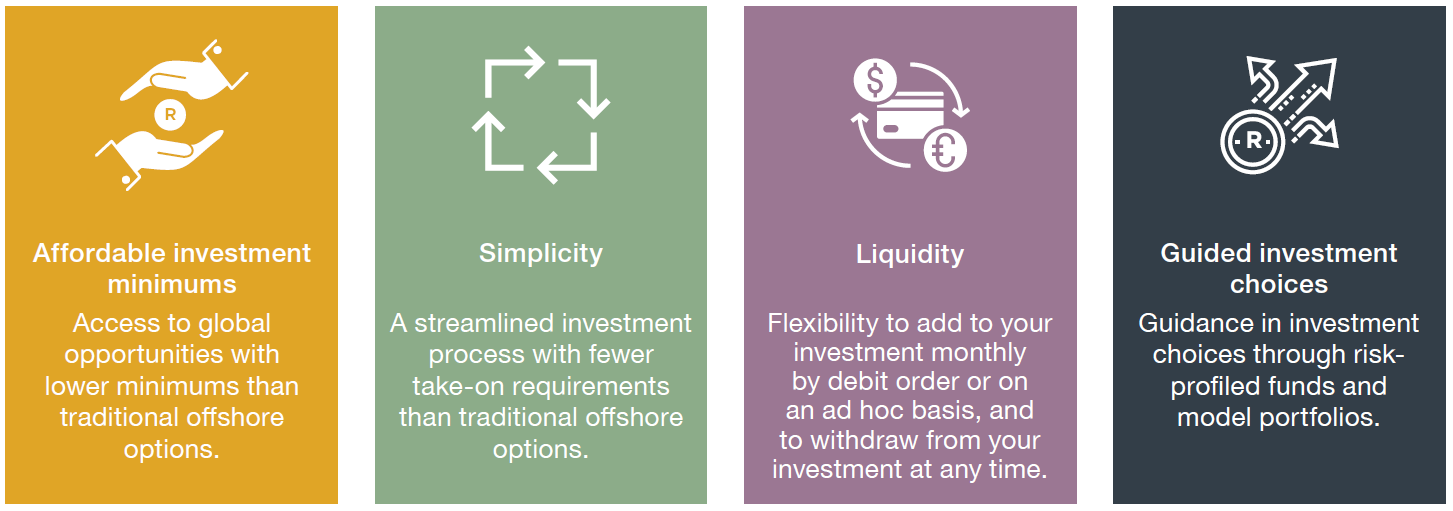Checking out Exactly How Investing Off Shore Functions: A Comprehensive Overview
Investing offshore offers an intricate landscape of chances and obstacles. Comprehending the different kinds of overseas accounts is vital for anyone considering this route. The benefits, consisting of boosted personal privacy and property security, are significant. Lawful and tax effects necessitate cautious attention. As investors seek to enhance their portfolios, the steps to establish a sensible offshore financial investment method end up being essential. What are the crucial elements that a person must navigate to prosper in this venture?
Recognizing Offshore Accounts and Their Kinds
What drives people and businesses to ponder overseas accounts? The allure of financial personal privacy, asset defense, and prospective tax obligation benefits commonly brings in the focus of those seeking to manage their riches extra purposefully. Offshore accounts, commonly established in international jurisdictions, can be found in numerous types. Individual accounts cater to specific needs, supplying services like cost savings, financial investment, or retirement planning. Business accounts, on the other hand, serve business aiming to help with global transactions, improve privacy, or enhance tax obligation commitments. Trust accounts offer an extra layer of defense, allowing individuals to secure their assets for future recipients. Each kind of offshore account presents special features, typically influenced by the regulatory setting of the host country. Understanding these distinctions is necessary for companies and people, as the choice of account kind can significantly affect their financial techniques and conformity with international laws.
Advantages of Offshore Investing
While lots of financiers look for opportunities to diversify their portfolios, offshore spending presents distinctive benefits that can boost economic growth and safety. One noteworthy benefit is the potential for property protection. Offshore accounts can safeguard investments from political instability or financial recessions in the capitalist's home nation. Additionally, overseas investments frequently supply accessibility to worldwide markets, permitting financiers to use emerging economic climates and fields that may not be available domestically.Another substantial benefit is tax efficiency. Lots of overseas jurisdictions supply favorable tax obligation routines, which can minimize tax liabilities and improve total returns. Overseas investing can enhance personal privacy, as particular territories impose rigorous discretion laws.Lastly, offshore accounts can promote wealth management strategies by supplying a wider range of financial investment alternatives, including alternative possessions such as actual estate and products. Jointly, these benefits make offshore investing an attractive choice for those aiming to enhance their economic portfolios.

Governing and lawful Factors to consider
Guiding through the legal and governing landscape of overseas investing calls for mindful interest and understanding. Investing Off Shore. Capitalists should browse a complex internet of legislations that differ markedly from one territory to an additional. Conformity with regional policies is vital; failure to do so can result in extreme fines, including penalties and imprisonment. Furthermore, knowing the lawful structures governing foreign investments is vital for guaranteeing the protection of assets and keeping functional legitimacy.Key factors to consider include recognizing the governing demands for establishing offshore entities, such as companies or trust funds, and adhering to anti-money laundering (AML) and know-your-customer (KYC) laws. Capitalists need to likewise understand reporting commitments in their home nation, as many countries need disclosure of offshore holdings. Involving with lawful specialists experienced in overseas financial investment can offer very useful guidance, aiding capitalists to minimize risks and safe and secure compliance with applicable legislations and policies while optimizing their investment potential

Tax Obligation Effects of Offshore Investments
Understanding the regulatory and legal considerations of overseas investing naturally brings about an evaluation of the tax implications related to these investments. Offshore investments can use considerable tax advantages, consisting of reduced tax obligation prices and the capacity for tax deferral. Capitalists should navigate complex tax obligation policies in their home countries, as numerous jurisdictions need taxpayers to report foreign income and assets.For U.S. residents, the Foreign Account Tax Conformity Act (FATCA) mandates the coverage of offshore accounts, while various other nations have similar needs. Failing to conform can cause severe fines. In addition, certain overseas funds may go through unique tax treatments, such as Passive Foreign Investment Firm (PFIC) regulations, making complex investment strategies.Investors ought to take into consideration speaking with tax experts to comprehend ramifications details to their situations and guarantee compliance with both domestic and international tax click here for info regulations, inevitably taking full advantage of the advantages of their offshore investments while lessening dangers.
Steps to Begin With Offshore Investing
Several capitalists looking for to diversify their profiles turn to offshore investing as a viable choice. To start, one must perform detailed research study on prospective overseas jurisdictions, taking into consideration elements such as regulative setting, taxation, and financial investment opportunities. Investing Off Shore. After choosing a suitable place, capitalists need to establish an offshore account, which usually requires paperwork showing identity and resource of funds.Next, investors typically engage with an economic expert or an offshore investment firm acquainted with neighborhood laws and market dynamics. This partnership can help in crafting a customized investment strategy that aligns with individual goals and run the risk of tolerance.Once the technique is in area, capitalists can continue to select particular assets or funds for investment, guaranteeing they evaluate efficiency and runs the risk of regularly. Keeping conformity with both local and home country regulations is crucial for effective overseas investing, requiring continuous diligence and potentially routine appointments with legal experts.

Frequently Asked Concerns
Exactly how Do I Pick the Right Offshore Jurisdiction?
Choosing the ideal overseas jurisdiction involves examining aspects such as regulatory environment, tax obligation benefits, political stability, and simplicity of doing company. Investigating each option thoroughly assures enlightened decisions that align with specific financial investment goals and risk resistance.
What Kinds Of Assets Can I Hold Offshore?

Are There Risks Related To Offshore Investing?
The dangers related to overseas investing include lawful complexities, regulatory changes, currency changes, and potential political instability. Financiers need to very carefully examine these aspects to reduce risks and guarantee compliance with worldwide legislations and policies.
How Can I Accessibility My Offshore Finances?
To accessibility offshore funds, individuals typically require to contact their monetary organization, offer essential recognition and paperwork, and follow well-known procedures for fund transfers, ensuring conformity with both regional and international regulations controling offshore financial investments.
What Prevail Misunderstandings Concerning Offshore Accounts?
Usual false impressions about overseas accounts consist of beliefs that they are exclusively for tax obligation evasion, absence of regulation, or easily accessible to the rich. In reality, they can be legit economic tools for varied individuals. Additionally, offshore financial investments frequently provide access to global markets, permitting investors to tap right into emerging economic climates and industries that may not be offered domestically.Another substantial benefit is tax effectiveness. Overseas investing can boost personal privacy, as particular jurisdictions impose stringent discretion laws.Lastly, overseas accounts can promote wealth administration methods by giving a broader array of financial investment choices, consisting of alternate possessions such as actual estate and products. Understanding the regulatory and legal considerations of offshore investing naturally leads to an assessment of the tax visit obligation effects linked with these view website financial investments. Offshore financial investments can use considerable tax advantages, including reduced tax prices and the capacity for tax obligation deferment. After choosing an appropriate place, financiers should develop an overseas account, which generally requires documentation verifying identity and resource of funds.Next, capitalists frequently engage with an overseas investment or a financial expert company familiar with regional regulations and market dynamics.